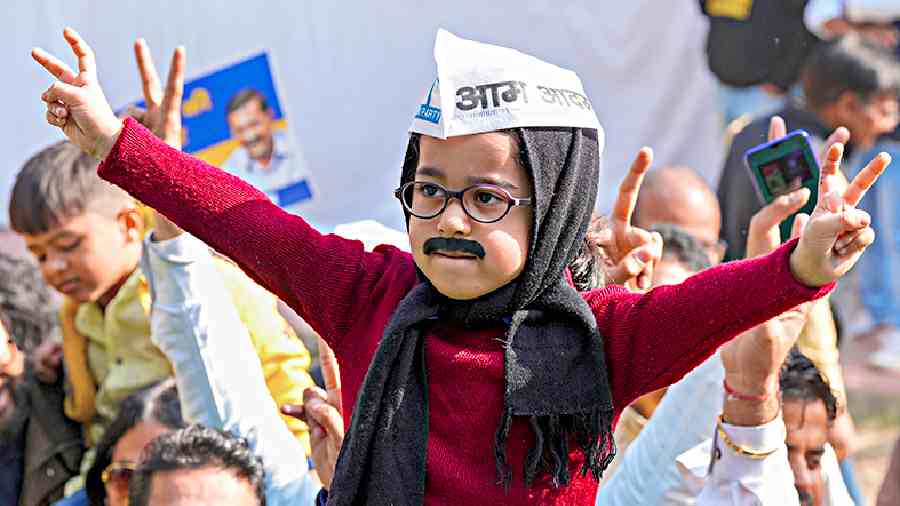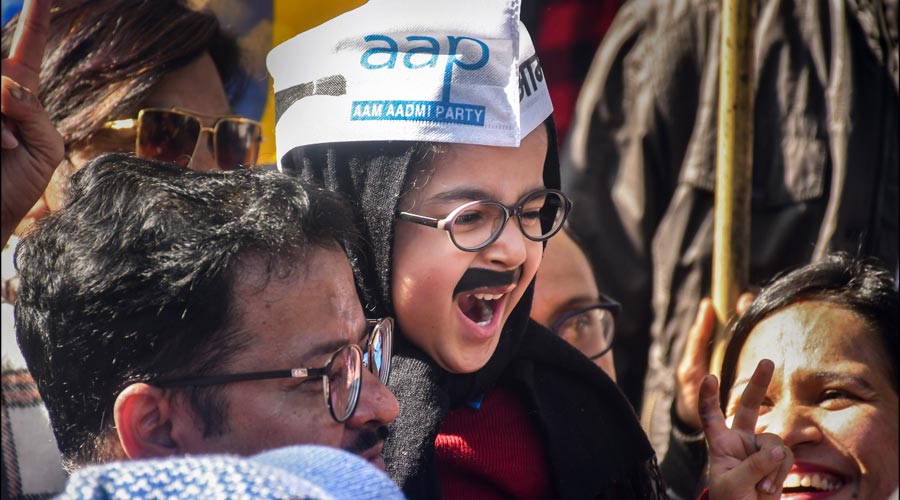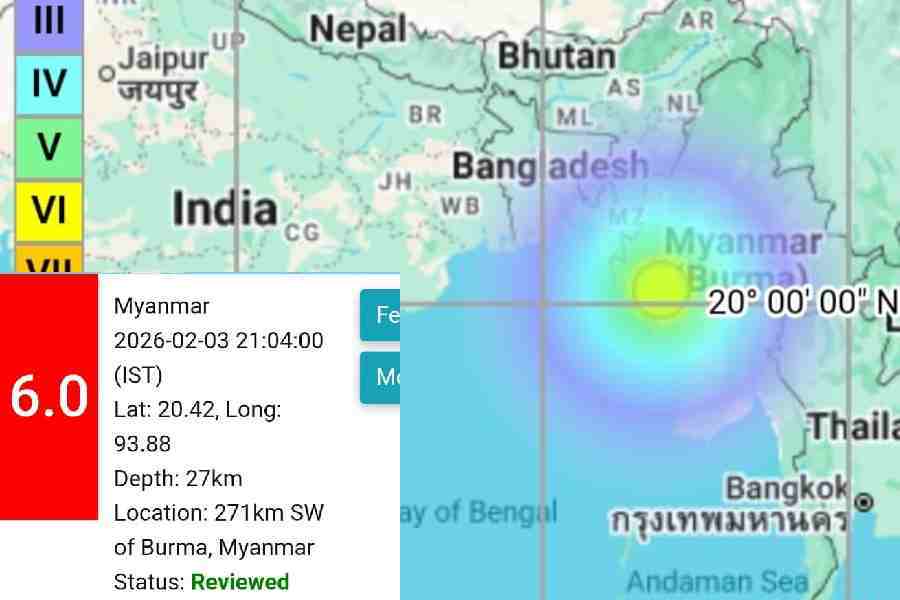The Aam Aadmi Party won a majority in the Municipal Corporation of Delhi elections on Wednesday, unseating the BJP which had held power for 15 years, but BJP suggestions of possible defections prompted the AAP to switch from celebration to fire-fighting mode.
The AAP won 134 wards out of 250, the BJP 104 and the Congress 9. Three wards went to Independents. But the national head of the BJP’s information and technology department, Amit Malviya, tweeted: “Now over to electing a Mayor for Delhi…. It will all depend on who can hold the numbers in a close contest, which way the nominated councillors vote etc. Chandigarh has a BJP Mayor, for instance.”
The AAP won the Chandigarh municipal polls last year, but the BJP candidate was elected mayor after a defection from the Congress and the invalidation of an AAP councillor’s vote.
Delhi BJP president Adesh Gupta said: “In a close fight, they may have gone ahead of us. But time will tell who will be Delhi’s mayor because during mayoral elections, many councillors may choose to listen to their conscience.”
The anti-defection provisions of the Constitution do not apply to local bodies and councillors vote by their conscience.
A mayor and deputy mayor are elected annually with the first year being reserved for women and the third for Scheduled Castes.
An AAP source said: “We needed at least 150 seats to ensure that even after defections, we would stay in power. But many Muslims have moved to the Congress and in some areas the split of votes has benefited the BJP. We expect around three Congress councillors and two Independents to go to the BJP. All our leaders are in constant touch with our councillors to ensure they remain with us. We understand that some of our potential mayoral candidates will be targeted. If some of them are poached, we can also attract BJP councillors.”
Neighbourhoods with a high Muslim population in Northeast Delhi that were hit by riots in 2020 and in Okhla where the Shaheen Bagh protest against the Centre’s new citizenship regime took place voted for the Congress.
AAP was seen as a bystander during the riots, soon after the Assembly polls in 2020, that claimed 53 lives.
The AAP also stayed away during communal tension and subsequent demolitions in a Muslim-dominated neighbourhood of Jahangirpuri earlier this year.
The AAP had blamed the Jahangirpuri violence on Bangladeshis and Rohingyas, but offered no proof. Old Delhi’s Muslim wards went to the AAP.
AAP national convener and Delhi chief minister Arvind Kejriwal took a conciliatory tone in his victory speech, saying: “Be it the Congress, be it the BJP, we will all work together so that we can build the Delhi of our dreams…. Among those who need to cooperate to help Delhi grow, the role of the central government is paramount. Through this platform, I appeal to the Centre and the Prime Minister, Modiji, to cooperate with us and seek their blessings.”
The AAP got 42.1 per cent of the votes, a big gain from its previous performance of 26.2 per cent (three corporations taken together) in the 2017 municipal elections but a drop of more than 11 per cent from its Assembly poll share in 2020. The BJP got 39.1 per cent of the votes, up from 36.1 per cent in 2017 and 38.5 per cent in 2020.
The Congress vote share was 11.7 per cent, less than the 21.1 per cent it got in 2017 but more than the 4.3 per cent in 2020.
The AAP fought the polls on the promise of eliminating the hills of garbage at Delhi’s three landfills, while the BJP and Congress focused on corruption allegations against the AAP government.
The BJP has traditionally been strong in the MCD irrespective of the party in power in Delhi, and a recent Parliament amendment has strengthened the Centre’s control over the civic body at the expense of the territorial government.
The civic elections were the first after the reunification of the capital’s three municipal corporations which had been trifurcated in 2012 with the BJP holding all three.
Polls had been due since April but were stalled after the Centre announced the reunification and began a delimitation exercise that saw the number of wards come down from 272 to 250.
A little over half of the registered voters cast their vote on December 4.











